News

 UAB-affiliated authors can publish open access in select Wiley gold and hybrid open access journals at no cost to the author through an ongoing read-and-publish agreement between Wiley and UAB Libraries.
UAB-affiliated authors can publish open access in select Wiley gold and hybrid open access journals at no cost to the author through an ongoing read-and-publish agreement between Wiley and UAB Libraries.
Unlike traditional publishing systems, open access journals do not require a subscription to access paywalled resources; to offset that loss of revenue, most OA publications collect what is called an article processing charge (APC) in order to publish.
The average APC cost is just over $1,600, according to an article published earlier this year in Sci Ed, and UAB Libraries funds up to 100 Wiley APCs per year on a first-come, first-served basis. Since Jan. 1, 2023, UAB Libraries has saved more than $773,000 in APC fees for UAB authors via its agreement with Wiley.
“The Wiley agreement is one of the most significant ways UAB Libraries can equip our authors to publish open access,” said Jeff Gravline, J.D., associate dean for Research and Scholarly Communication and director of the Office of Scholarly Communication in UAB Libraries. “We’re excited to continue offering APC funding assistance for the third year running.”
After the cap is reached, UAB-affiliated authors remain eligible for a 15% discount on APCs when publishing open access with Wiley.
Get the details
To qualify for APC funding through UAB Libraries’ agreement with Wiley, authors must currently be affiliated with UAB and be either the lead or corresponding author on the article. Articles must be a Research Article, Review Article or a Case study, and it must have been accepted on or after Jan. 1, 2025. Authors also are limited to one funded APC per calendar year. Find additional details in this research guide.
More opportunities to publish open access
In addition to its agreement with Wiley, UAB Libraries also has read-and-publish agreements with Springer Nature, which has saved more than $397,00 for UAB authors since January 2024, and Cambridge Publishing, which has saved more than $100,000 for UAB authors since January 2021.
Two new agreements with Mary Ann Liebert Inc. and The Company of Biologists were launched in January 2025, and UAB also has ongoing agreements with IOP Publishing, the Association for Computing Machinery and the Royal Society of Chemistry.
Learn more about open access publishing support through UAB Libraries in this research guide, and contact Graveline (jgraveli@uab.edu) in the Office of Scholarly Communication with questions.
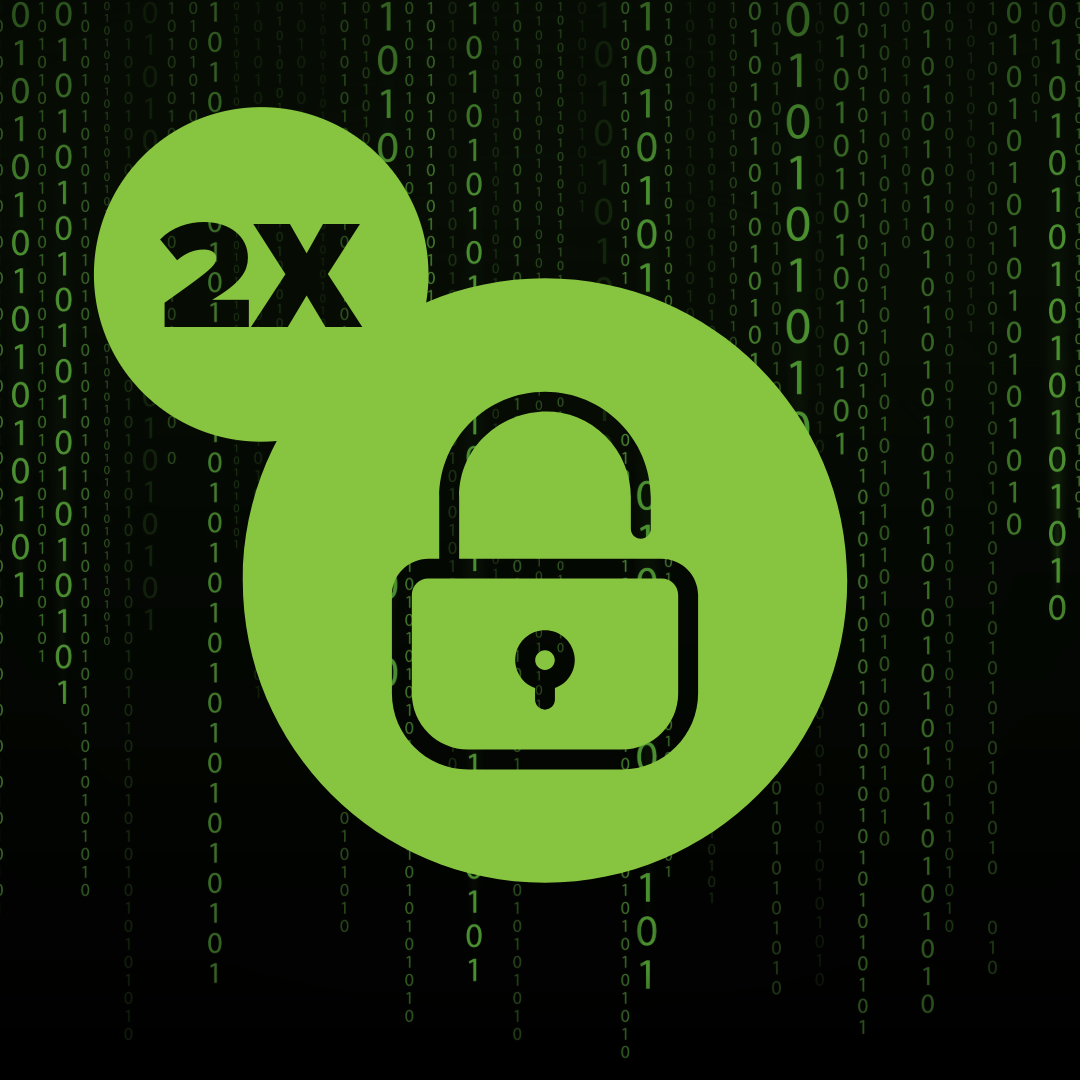
 Two new read-and-publish agreements made between UAB Libraries and top journal publishers Mary Ann Liebert Inc. and The Company of Biologists will enable UAB authors to have their article processing fees (APCs) waived when publishing in select open access journals — meaning savings of around $1,600 per author per article.
Two new read-and-publish agreements made between UAB Libraries and top journal publishers Mary Ann Liebert Inc. and The Company of Biologists will enable UAB authors to have their article processing fees (APCs) waived when publishing in select open access journals — meaning savings of around $1,600 per author per article.
Three previously established read-and-publish agreements with Wiley, Springer Nature, and Cambridge Publishing saved UAB authors more than $1.1 million in costs associated with open access publishing from 2021 through fall 2024.
“The addition of two new read-and-publish agreements is a huge step in expanding our commitment to open access publishing,” said Jeff Graveline, J.D., associate dean for Research and Scholarly Communication and director of the Office of Scholarly Communication in UAB Libraries. “When work by our authors is published open access, that means its available at no cost to anyone who wants to read it — enabling the work done here at UAB to be an even bigger part of research, education and health care on a global scale.”
Mary Ann Liebert Inc. is a global media company dedicated to creating, curating and delivering impactful peer-reviewed research and authoritative content services to advance the fields of biotechnology and the life sciences, specialized clinical medicine, public health and policy, and technology and engineering. Under the new agreement, UAB authors may have their APC costs waived for any gold or hybrid open access journal published by Mary Ann Liebert Inc.
|
“When work by our authors is published open access, that means its available at no cost to anyone who wants to read it — enabling the work done here at UAB to be an even bigger part of research, education and health care on a global scale.” |
The Company of Biologists is a not-for-profit publishing organization dedicated to supporting and inspiring the biological community. Under the new agreement, UAB authors will not be charged an APC for publishing in any of the organization’s five journals: Development, Journal of Cell Science, Journal of Experimental Biology, Disease Models and Mechanisms, and Biology Open.
To qualify, authors must currently be affiliated with UAB, and articles must have been accepted on or after Jan. 1, 2025. See additional specific qualifications for Mary Ann Liebert and The Company of Biologists online, and learn more about open access publishing support through UAB Libraries in this research guide. Contact Graveline (jgraveli@uab.edu) in the Office of Scholarly Communication with questions.
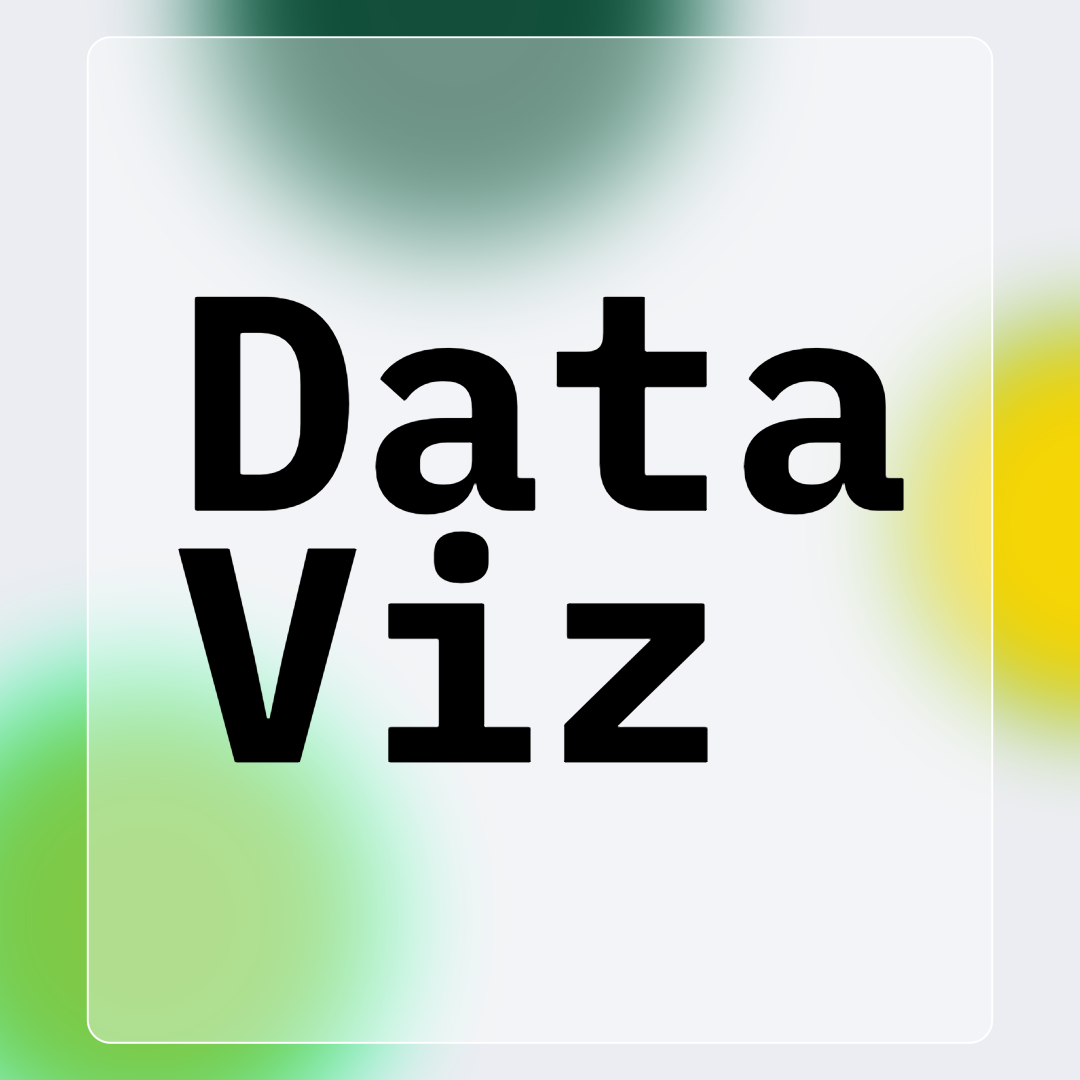

Data visualization — the representation of data through charts, plots, infographics, and other visual media — can be a powerful tool in communicating research to a variety of audiences.
In this three-workshop series, Ashley S. McGuire, STEM librarian and liaison to the School of Engineering and the Department of Chemistry for UAB Libraries, will introduce participants to all things data visualization for both quantitative and qualitative research.
All workshops take place noon-1 p.m. in Sterne 16; bring a laptop or borrow one from the HUB Desk or loaner kiosks. Registration is required.
Feb. 5 — Getting Started with Data Visualization: Tools for Research
McGuire will discuss choosing the right tools for representing various kinds of data, plus provide guided practice in creating a variety of data visualizations, from classic charts and graphs to more sophisticated, interactive media.
March 5 — Getting Started with Data Visualization: Elements of Visual Design
McGuire will share best practices and common pitfalls to ensure accuracy and clarity in data visualizations and for understanding audiences, selecting the right type of visualization for your data, and how to use your data to tell a story.
April 2 — GIS for Data Visualization
Guest speaker Ariann F. Nassal, director of Geospatial Data Visualization at the Lister Hill Center for Health Policy, will give an introduction to geographic information systems and discuss tools available at UAB to create sophisticated visualization tools with your data.

 Employees and students interested in learning how to use UAB’s 3D printers can sign up for one of 10 upcoming training sessions offered by UAB Libraries this spring. Completing a training session is required before users can begin printing their own projects — but at just 1.5 hours long and offered both online and in-person, the rewards far outweigh the relatively small time investment, said Technology Labs Manager Patrick Boggs, who leads the training session.
Employees and students interested in learning how to use UAB’s 3D printers can sign up for one of 10 upcoming training sessions offered by UAB Libraries this spring. Completing a training session is required before users can begin printing their own projects — but at just 1.5 hours long and offered both online and in-person, the rewards far outweigh the relatively small time investment, said Technology Labs Manager Patrick Boggs, who leads the training session.
“3D printing lets users be creative in so many ways,” Boggs said. “Lots of people print for fun — they make game figurines or intricate pots for plants, things like that — but what’s special about printing at UAB is that we’re uniquely placed to help with research and other campus initiatives.
“Folks at UAB have discovered really unique ways to incorporate 3D-printed items into their projects, like making molds for silicone tools used in heart research, or cases for GPS units the football team uses. The options really are endless.”
Sign up for a training that works for you
During the training, Blazers are given access to printer queues for both Sterne Library and Lister Hill Library 3D printing via 3DPrinterOS. 3DPrinterOS is a cloud-based system that lets users monitor the ongoing print queue to see when printers are available and check the progress of their jobs; several of the 3D printers managed in 3DPrinterOS have cameras attached so users can watch how their prints are coming along. Users also automatically receive a time-lapse video of their items being printed via email once the objects are complete.
Sessions continue through April 18; you also can find them on the Campus Calendar.
Introductory 3D Printer Training
- Feb. 6, noon-1:30 p.m., Lister Hill Library Virtual Reality Studio (110)
- Feb. 12, noon-1:30 p.m., LibLab (Sterne Library 112)
- Feb. 21, noon-1:30 p.m., virtual
- March 6, 11 a.m.-12:30 p.m., LHL Virtual Reality Studio (110)
- March 21, 11 a.m.-12:30 p.m., virtual
- April 3, noon-1:30 p.m., LHL Virtual Reality Studio (110)
- April 9, 1 p.m.-2:30 p.m., LibLab (Sterne 112)
- April 18, noon-1:30 p.m., virtual
Introductory SLA 3D Printer Training

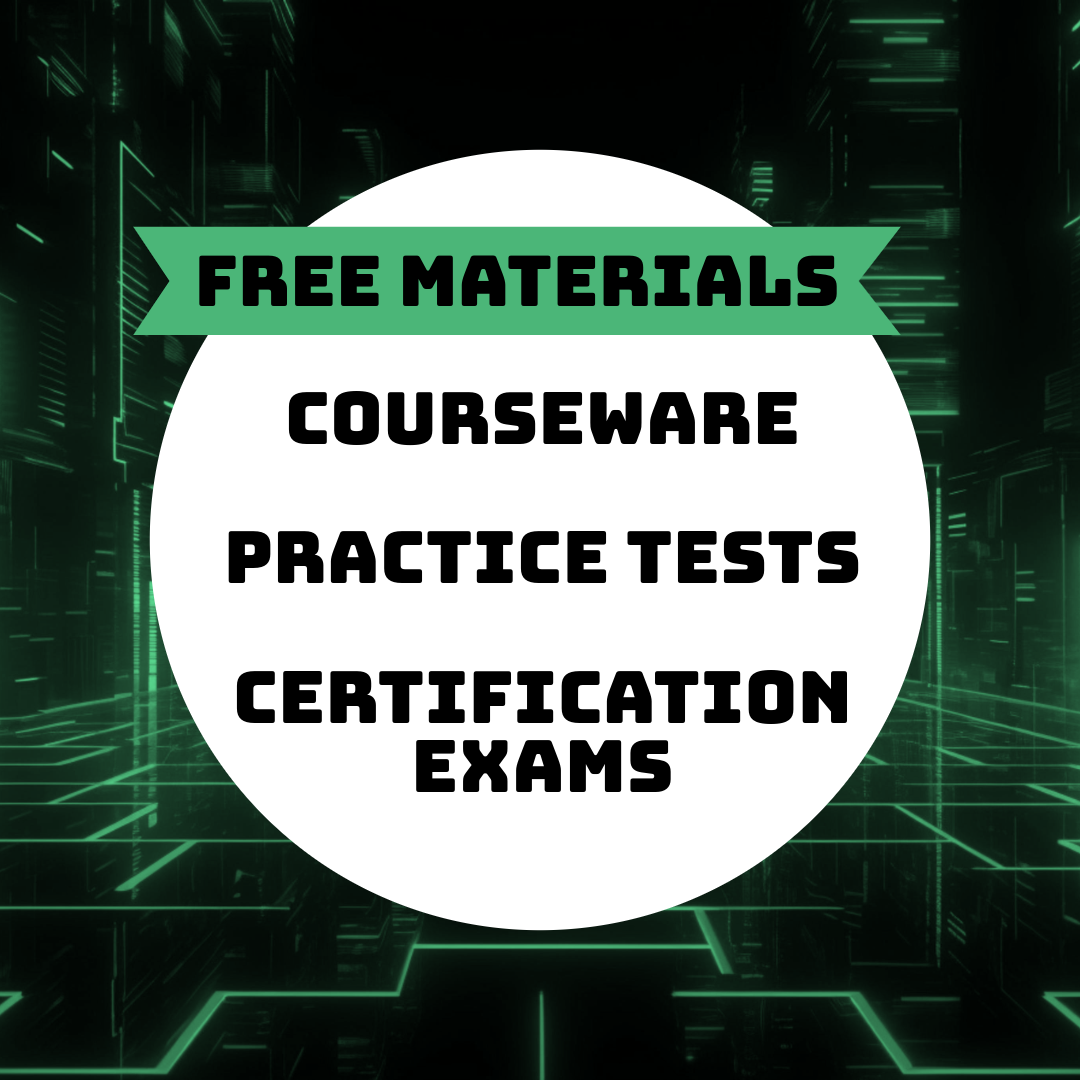 Through a continued membership with Unity Academic Alliance, UAB students and employees can earn industry-recognized certifications in programming, artistry and game development from Unity, a real-time software development platform used to create content for virtual, augmented and mixed-reality, AI-driven simulations, and 2D and 3D video games.
Through a continued membership with Unity Academic Alliance, UAB students and employees can earn industry-recognized certifications in programming, artistry and game development from Unity, a real-time software development platform used to create content for virtual, augmented and mixed-reality, AI-driven simulations, and 2D and 3D video games.
The membership enables UAB students, faculty and staff to request no-cost, voucher-based access to Unity courseware, practice test content and certification exams. Available certifications include Certified Associate Programmer, Certified Associate Artist and Certified Associate Game Developer. Certification vouchers are available on a first-come, first-served basis; UAB’s Unity Academic Alliance membership will conclude when all vouchers are claimed.
“Unity developers remain in high demand in a variety of industry, from engineering, to film, to animation,” said Kevin Hebert, associate dean for Technology and Technical Services in UAB Libraries. “When we launched this program in spring 2024, we saw huge interest, so we know folks are interested in the skills these certifications encourage. We’re excited to offer it again and continue to support students as they combine what they learn in class with specific skills to develop portfolios for their post-graduation job search.”
How to get started
Blazers can begin earning Unity certifications by requesting vouchers through the UAB Libraries partnership; remember, the number of certifications available is limited and will be awarded on a first-come, first-served basis. Once an employee or student has selected a learning pathway (Programmer, Artist or Game Developer), they can request courseware, practice test and certification exam vouchers through UAB Libraries.
Employees also can request Unity Academic Alliance member portal access to view curricular frameworks and other materials to support instruction and classroom use of Unity for different applications.
Visit the Unity Academic Alliance page in the Library Technology Labs research guide to learn more.
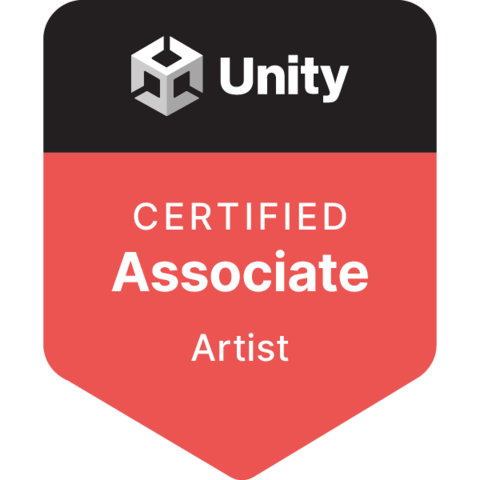
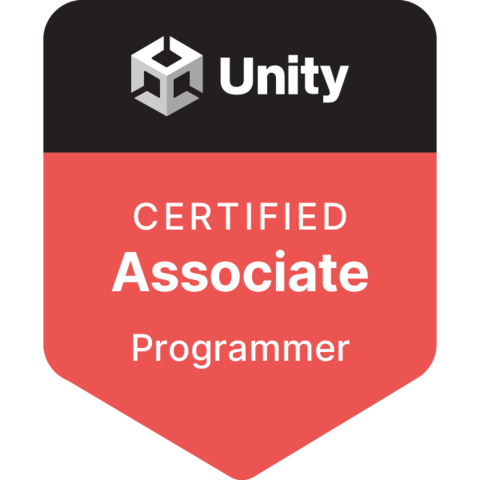
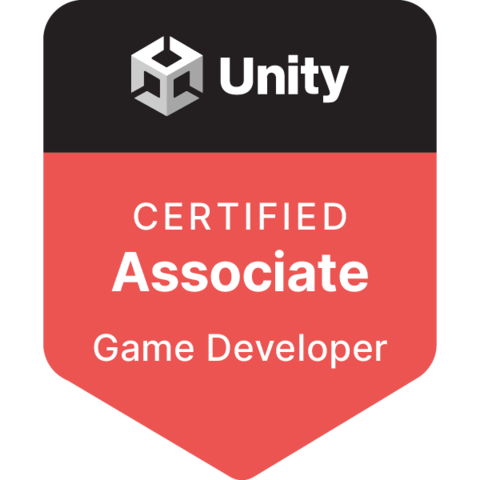 Certified Associate Game Developer
Certified Associate Game Developer